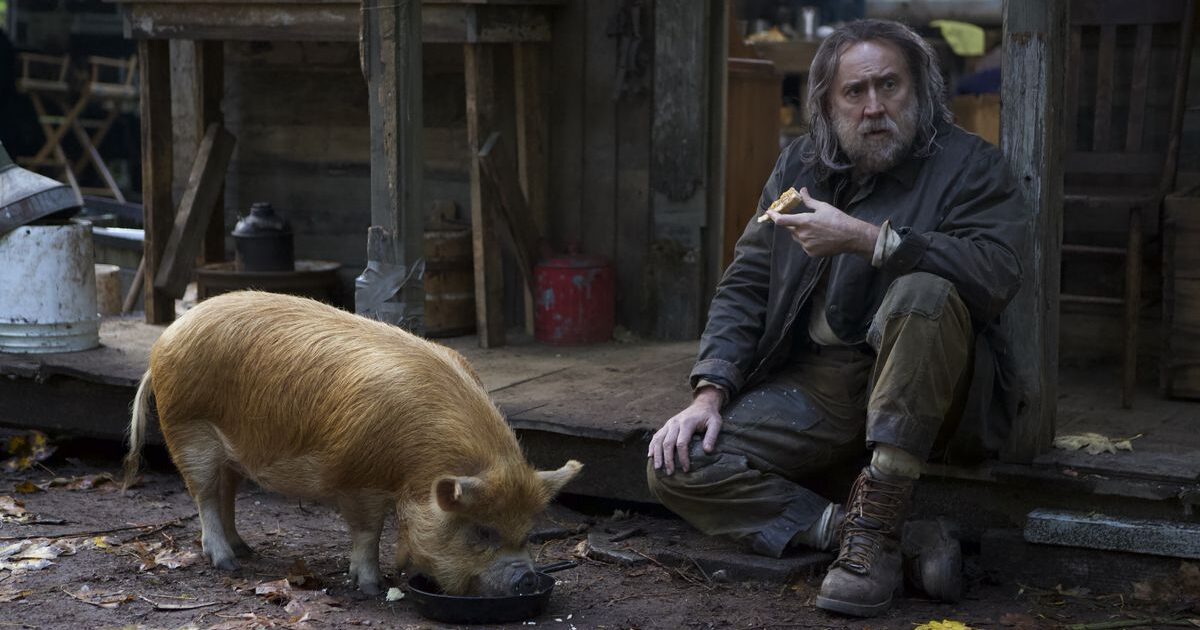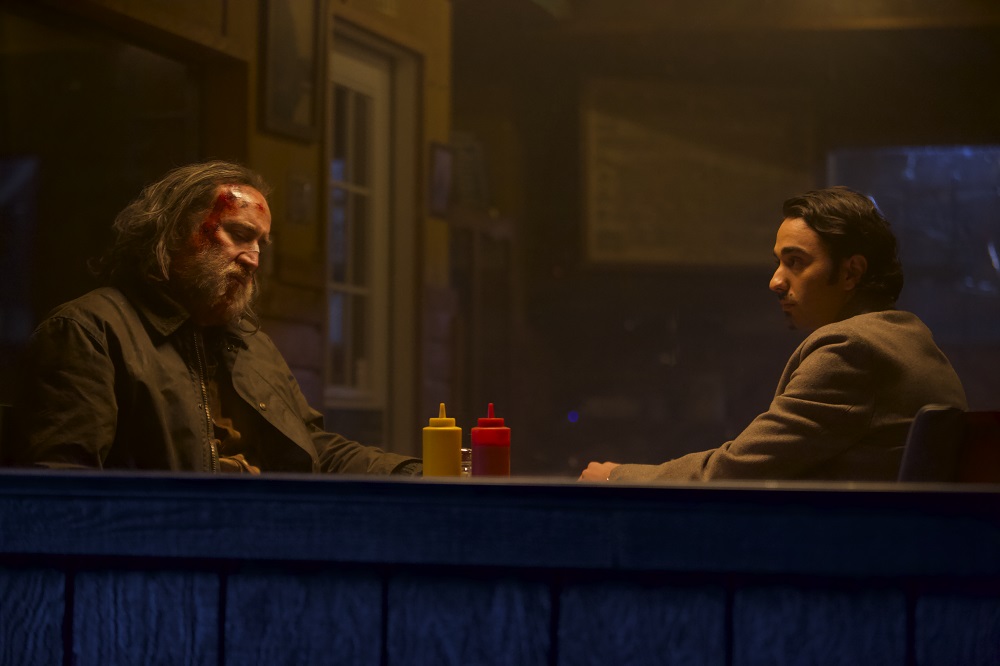
When preparing a meal sometimes there’s that one ingredient that perfectly connects and enhances all the flavors on the plate. You may have gotten by without it but the meal would never sing as sweetly. Nicolas Cage is that ingredient in Pig. He is the spice at the back of the rack that you have not used in awhile. Then, once used again, you remember why you enjoy it so much.
Cage’s creative choices have been wild as of late, to say the least. Sure many people enjoy his more ‘schlocky’ recent work, but it’s an acquired taste. Pig on the other hand is a revelation! A reminder just how good Cage is in one of the best performances of his career.
His work here at times is so subdued it subverts expectations, so you kind of lean in and listen closer. It quickly becomes evident that there is more at play here than a story about a man and his pig. It is an exploration of loss, grief and self. Leave the last decade of Cage cinema antics at the door and dive in. I found it to be one of the most surprisingly poetic and moving films of the year. I think it has to do with the blurring of the films’ themes and Cage himself. He has become a punchline, misunderstood, and at times looked upon as a tragedy which plays perfectly into his role here.
Cage plays Rob Feld, a grisly, long-bearded loner who spends his days with his pig, alone in the woods of Oregon. Though he’s a quiet, reclusive, there are clues that there’s much more to his story. With the help of his pig, Rob hunts down the valuable truffles which he sells to the local restaurants through their supplier, Amir (Alex Wolff). He’s a hot shot wannabe with a larger than earned attitude.

It is an odd couple relationship, but one of necessity for both of them. Everything changes after a brutal attack leaves Rob badly beaten and his companion missing, kidnapped by some locals for its truffle finding capabilities. The event sets Rob off on a mission to get back his pig whatever the price, with the help of a reluctant Amir.
They head out of the wilderness and into the culinary world of Oregon that exposes a seedier underground than you would expect. While doing so the pair learn about each other and themselves. But don’t get me wrong, this is not a lighthearted buddy film nor is it the action-filled revenge thriller that you may expect. Director/co-writer Michael Sarnoski’s film is a quieter, slower burn that benefits from the patient silences and pauses.
These moments are fitting. For a film positioned as the hunt for a lost pig, it quickly becomes much more – an introspective search for the truths about oneself. We slowly peel back the layers to find pain and doubts that hide behind the rough exterior and massive beard. This is his existential journey that plays out like a fable as he collects lost souls along the way.
The film subverts your expectations at times and does so with precision. When the film looks like it will zig, it often zags, keeping you on your toes and delivering impactful moments. Cage’s character has this ability to see into people, removing the facade and revealing their humanity. In the wrong hands it could have felt cheesy or melodramatic, instead it is haunting and real.

There is one particular scene that is as powerful as any cinematic scene as I can remember. Cage and the other actor in the scene (David Knell) deserve huge props. The path it takes to get there is so unexpected yet efficacious that I rewound and watched again to take in the nuance. You will know when you see it and you won’t forget it. It was just one of several scenes that really connected and almost had me in tears. The film takes you on a wild ride that I will allow you to let unfold for yourself. You can come back and comment about it here or reach out to me on Twitter – @filmsnork.
That is the biggest surprise, through the absurdity of it all (this is about a man trying to find his lost pig after all) that there is so much heart here that creeps up and sinks in at a very root level. Cage forgoes the big, over-the top swings, instead bringing a more restrained and internalized performance – where his eyes often say more than his dialogue. He is brilliant here and surrounded by stellar performances from Wolff and Adam Arkin.
Shot beautifully by Patrick Scola who captures warm hues in the darkness – desaturated yet vividly detailed. So much so that you can almost feel the dampness of the forest and smell the aromas of the culinary art moments. Alexis Grapsas and Philip Klein’s score is moving and melancholic, complementing the performances and heavy themes even when, like the dialogue, is understated and sparse, yet effective.
Pig is a character study that at times almost seems to dissect Cage himself, adding another layer to the complex themes so brilliantly explored. The parallels between the art and the artist are undeniable, but the success of Sarnoski’s work (his first feature film) is independent of all this. The film balances grief and beauty in a way that is poignant and unshakable. Cage’s performance stands on its own, making him (and the film) like a meal you savor and only find more to enjoy with every forkful. Bon Appétit.
Quick Scan:
‘Pig’ is the surprise film of the year that subverts expectations to deliver a much more poignant experience than anticipated.

